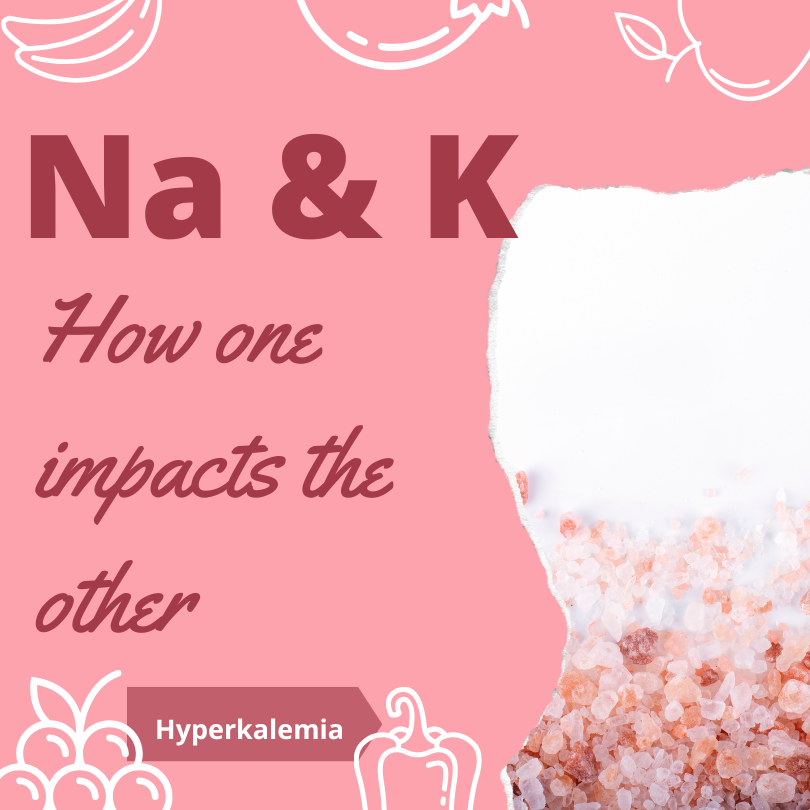As I highlight in my Hyperkalemia Assessment Cheat Sheets, the causes of hyperkalemia can be difficult to figure out. In most, it isn’t as simple as eating a banana a week before blood work.
But how does sodium intake impact potassium levels? This article was sent my way by a fellow dietitian. Thanks for the email!
Why are sodium and potassium linked?
The sodium-potassium ATPase pumps link sodium and potassium by exchanging sodium for potassium across cells, playing a key role in regulating potassium excretion in the kidney.
In the kidney, two specific sodium/potassium interactions can occur which will result in reduced urinary potassium excretion are:
- Voltage-dependent potassium secretion reductions related to inadequate sodium reabsorption in the cortical collecting tubule
- Low distal sodium delivery resulting in excessive proximal sodium reabsorption and decreased potassium secretion in the cortical collecting tubule.

How will low sodium intake impact serum potassium levels?
In this interesting case report, the authors described a consistent association between low sodium intake and hyperkalemia in a person with normal kidney function. They outlined how they ruled out all other potential causes of hyperkalemia.
When no other cause could be identified, the authors suspected extreme low sodium intake as the primary factor. They confirmed low sodium intake with consecutive 24-hour urine sodium results below 20 mEq/L and verified it through the patient’s reports of adhering to a strict low-sodium diet.The clinicians encouraged the patient to liberalize their sodium intake and with each 1g liberalization, the serum potassium values returned to normal.

Is it possible that this is a one off relationship?
Hunter and Bailey’s 2019 article in Nephrology, Dialysis, Transplantation discusses the relationship between sodium and potassium.
Sodium delivery to the distal (far part) of the nephron is an important factor in urinary potassium excretion. Studies using mouse models have shown that:
- Excess sodium delivery will lead to hypokalemia
- Inadequate sodium delivery will lead to hyperkalemia
Take Aways
While extremely low sodium diets are rare for most North American’s, at least one case report found that a low sodium diet, for someone with otherwise normal kidney function, was the cause of hyperkalemia. And, that dietary sodium liberalization resulted in normal serum potassium levels.
So, if you have unexplained hyperkalemia with no other causes, assessing the sodium intake may be worthwhile. Confirmation of sodium intake using a combination of diet recalls and 24 hour urine sodium, may help rule this out/in as the cause.




One thought on “How does sodium intake relate to hyperkalemia?”